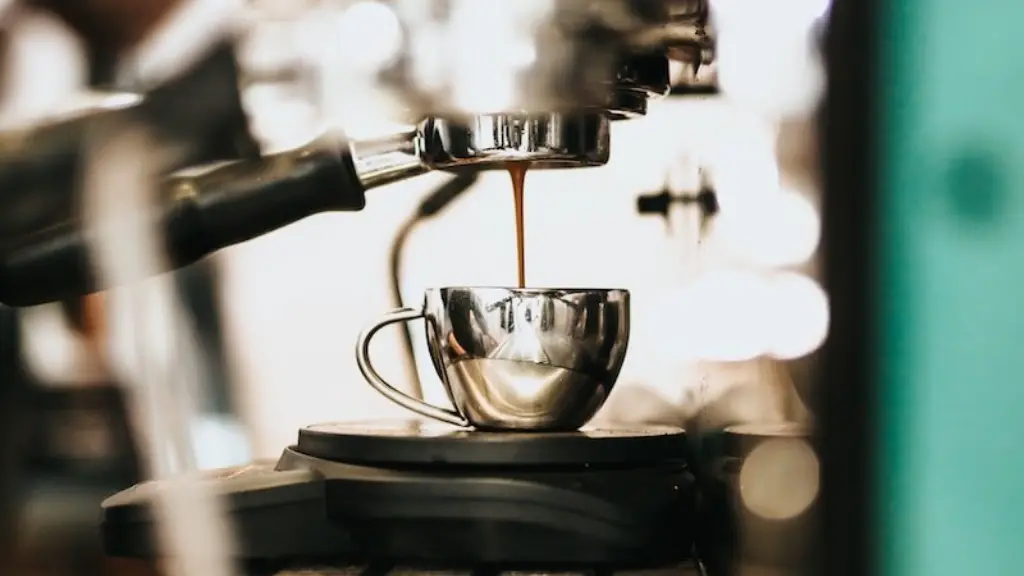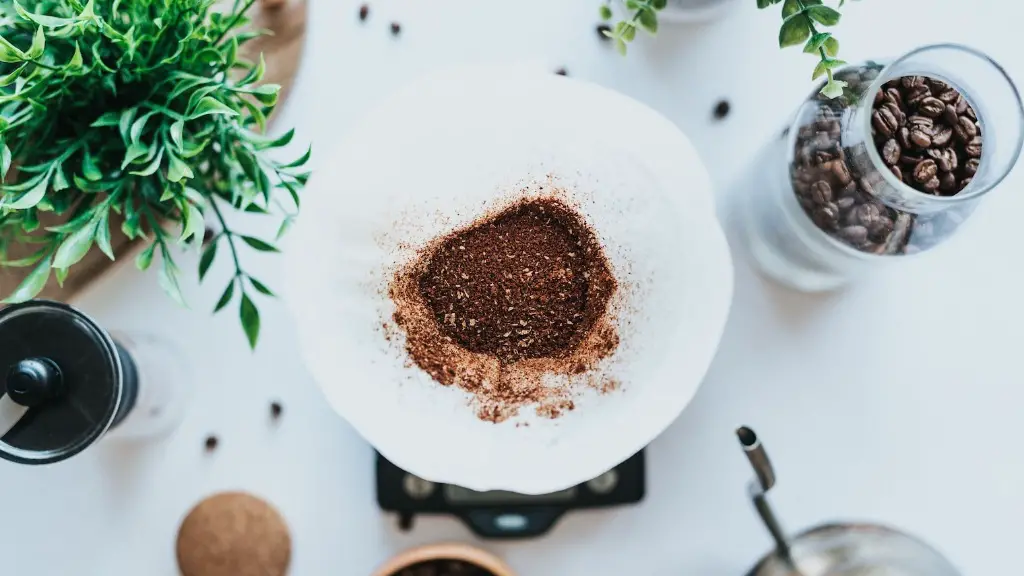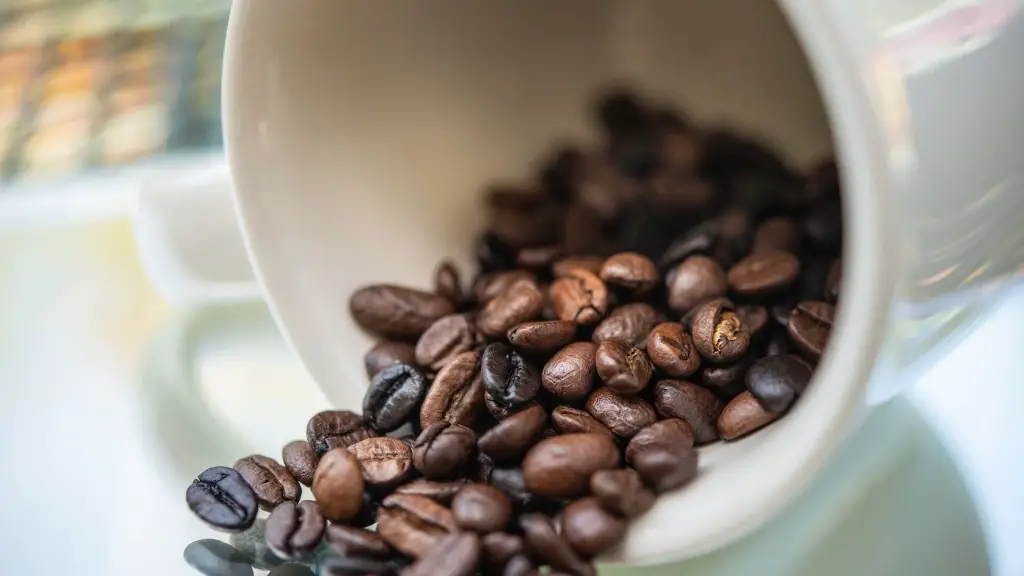Coffee is a popular morning ritual, but having that cup of joe during your period may not be the best idea. Studies have shown that drinking coffee during your period may cause more discomfort and disruption to the menstrual cycle than without. The caffeine in coffee has been shown to heighten feelings of anxiety, improve alertness, and increase your heart rate. All of these can be especially problematic for women during their period when typical bodily functions such as hormones and bleeding are altered. Caffeine can also interfere with the body’s natural process of absorbing iron from food, which is necessary for making red blood cells.
In small doses, caffeine can help you feel more alert and focused, but it can also cause withdrawal symptoms if used in excess. Many women might find that a cup of coffee is necessary during their menstrual cycle to help make up for lost energy due to the hormonal changes. However, too much of it can cause anxiety, insomnia, restlessness, and other issues that inhibit the body’s ability to heal or rest.
On the flip side, some studies suggest that drinking coffee during your period can help manage PMS symptoms such as irritability, tension, and fatigue. This is because caffeine stimulates the brain and helps to block adenosine, a chemical in the body that makes us feel tired. Additionally, some evidence suggests that caffeine increases endorphin levels, which can lead to a positive mood and lessen discomfort.
So, in the end, drinking coffee during your period may not be a bad thing if done in moderation. As with anything it’s important to assess your own personal needs and consider your lifestyle before making a decision. Here are a few questions to ask yourself:
- Am I sensitive to caffeine?
- What are my symptoms during PMS and my period?
- How often do I drink coffee?
- How do I feel after I drink coffee?
Women should be aware of the potential consequences of having coffee during their period to make the best decision for their own health. It is always a good idea to speak with a doctor or health professional if you are concerned. Additionally, there are some alternatives, such as herbal tea, that can offer just as much energy with no side effects.
Nutritional Aspects
Apart from containing caffeine, coffee also contains a range of vitamins, minerals and antioxidants. The biggest nutrients in coffee beans are riboflavin, niacin, pantothenic acid, manganese, potassium, and magnesium. These vitamins and minerals can help with tiredness and fatigue, which many women may experience during their period.
The antioxidants and phytochemicals in coffee may also help reduce oxidative stress and inflammation of the body. This means that coffee can potentially help with reducing cramps, bloating, and other period-related ailments. Furthermore, the caffeine in coffee can help to boost your energy and make you feel more alert and focused.
However, it is important to note that coffee is not a magic tonic. It needs to be consumed in moderation and combined with a healthy lifestyle and a balanced diet in order to see its full benefits. Additionally, coffee should be consumed during the day and not kept as a late-night drink as it can lead to disrupted sleep patterns.
Potential Side-Effects
Although coffee can have some positive effects on your period, it is important to be aware of the potential side-effects that it may have. The caffeine in coffee can slow down digestion which can cause constipation and intestinal gas. Excess coffee consumption can also lead to anxiety, irritability, tremor, and nervousness due to the caffeine overload.
On top of that, coffee can disrupt your menstrual cycle and lead to early or delayed periods. This is because caffeine can interfere with hormone production and cause irregular bleeding patterns. Furthermore, studies have also linked caffeine with increased risk of endometriosis and pelvic pain. That being said, if you limit your coffee intake and ensure you stay hydrated then these side-effects can be avoided.
Conclusion
In conclusion, drinking coffee during your period may not be a bad thing if done in moderation. Coffee can provide some useful vitamins and minerals that can help with tiredness and fatigue, as well as reducing cramps and other period-related ailments. However, it is important to be aware of the potential side-effects of having too much caffeine and to assess your own needs before consuming any kind of caffeinated drink.
Using Coffee Alternatives
Apart from coffee, there are other caffeinated drinks that can also provide some of the same benefits. These include energy drinks, tea, and even chocolate. However, it is important to remember that these drinks still contain caffeine and should be consumed in moderation.
Herbal teas can also be a great alternative to coffee during your period. Peppermint tea can help relax muscles and reduce cramps, while chamomile tea can help control mood swings and reduce stress. Additionally, ginger tea can help reduce bloating and soothe the stomach while strengthening the immune system.
These herbal teas are not as strong as coffee, but they can still provide some of the same benefits without any of the potential side-effects. Additionally, these herbal teas can also be a great way for women to take some time for themselves and relax during their period.
The Role of Lifestyle
Apart from beverage consumption, lifestyle also plays an important role when it comes to managing period-related ailments. Regular exercise can help reduce cramps and bloating and improve mood. Additionally, getting enough sleep and staying hydrated are also important for maintaining optimum health.
Having a balanced diet is also key to managing menstrual cycles and period-related ailments. Foods high in iron, such as spinach, broccoli, and broccoli, can help keep your energy levels up and prevent anemia. Furthermore, foods that are high in fiber and low in fat can help reduce bloating and cramps.
Lastly, there are also some natural supplements, such as magnesium and omega-3 fatty acids, that can help reduce PMS symptoms. Supplements, such as evening primrose oil, chasteberry, and black cohosh, can also help reduce menstrual cramps and other symptoms associated with the menstrual cycle.
Taking Care of Yourself
While coffee can provide some benefits during your period, it is important to consider your own individual needs and ensure that you are taking care of your body. Pay attention to your body and take note of how you feel when you drink coffee. If you find that coffee is causing more disruption than good, then it is best to avoid it and look for alternative options.
Moreover, it is important to be mindful of your lifestyle and diet. Eating a balanced diet, exercising regularly, and taking some time for yourself can all help you manage your period-related ailments. Lastly, always speak to a doctor or health professional if you are ever concerned about your health.




